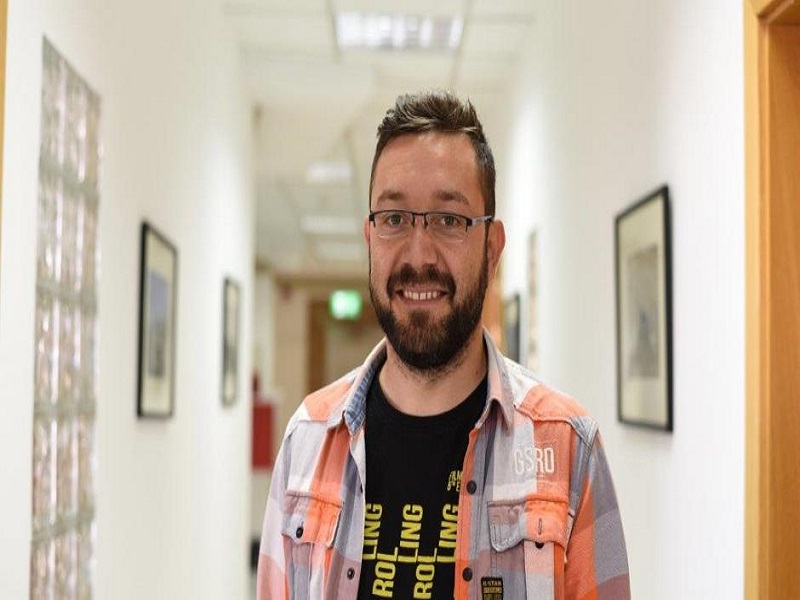Category: News Organizations: OSCE Tags:
This is the story of Edis Galushi, a young member of the Kosovo Roma community from the Prizren municipality. This story is part of a series of OSCE Mission in Kosovo articles on the struggles and achievements of successful individuals belonging to the Roma, Ashkali, and Egyptian communities in Kosovo. The OSCE Mission works with all communities in Kosovo to protect, promote and advance their rights.
We met Edis Galushi in the café of a quiet bookstore in Prizren. One of the first things he told us was that in Prizren, unlike other places in Kosovo and Europe, Roma were experiencing a renaissance thanks to the engagement of Roma intellectuals and stakeholders.
In 1989, the same year of Edis’ birth, a Roma Theatre was founded in Prizren as a forum for discussing social issues and transforming them into plays.
“The theatre contributed to the integration of Kosovo Roma into society,” says Edis. “The general public was exposed to the challenges faced by the community. It meant a lot at the time, and it means a lot today.”
Edis says that when it comes to the Roma language, the situation does not look quite as rosy. “Despite qualifying for status of a language in official use in Prizren, it still remains unrecognised.”
Nevertheless, Edis is not discouraged from promoting his culture and language. He is a professional translator and interpreter from Romani, having obtained a Master’s degree in English studies and English teaching.
“I was raised in Prizren’s unique cultural context and I decided to join the Roma Theatre at the age of 15,” says Edis. A decade later, Edis started writing monodramas — one of the hardest genres to perform on stage.
”My very first monodrama was titled Panta Rhei (‘Everything Flows’ in ancient Greek)”. It was a historical overview of the different migration routes taken almost a thousand years ago by Roma people from what is known today as north-eastern India,” explains Edis.
The play highlighted the most common stereotypes about Roma people. To set the stage for the narration across Roma history, different props were used (for example blacksmith tools and musical instruments) associated with Romani tribes.
“The play ends with books being set on fire,” says Edis. “It’s symbolic. Roma have always been written by non-Roma, either purposefully or accidentally feeding into century-old prejudices. When we are portrayed, we are never asked to contribute. I thought it was important to reveal that truth. At least my truth,” he says.




